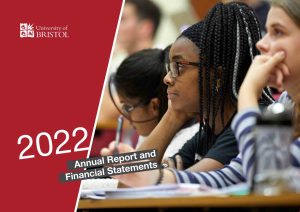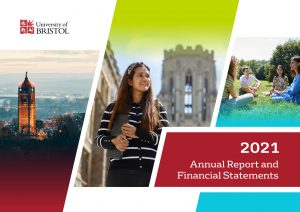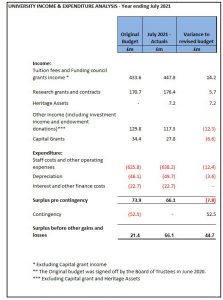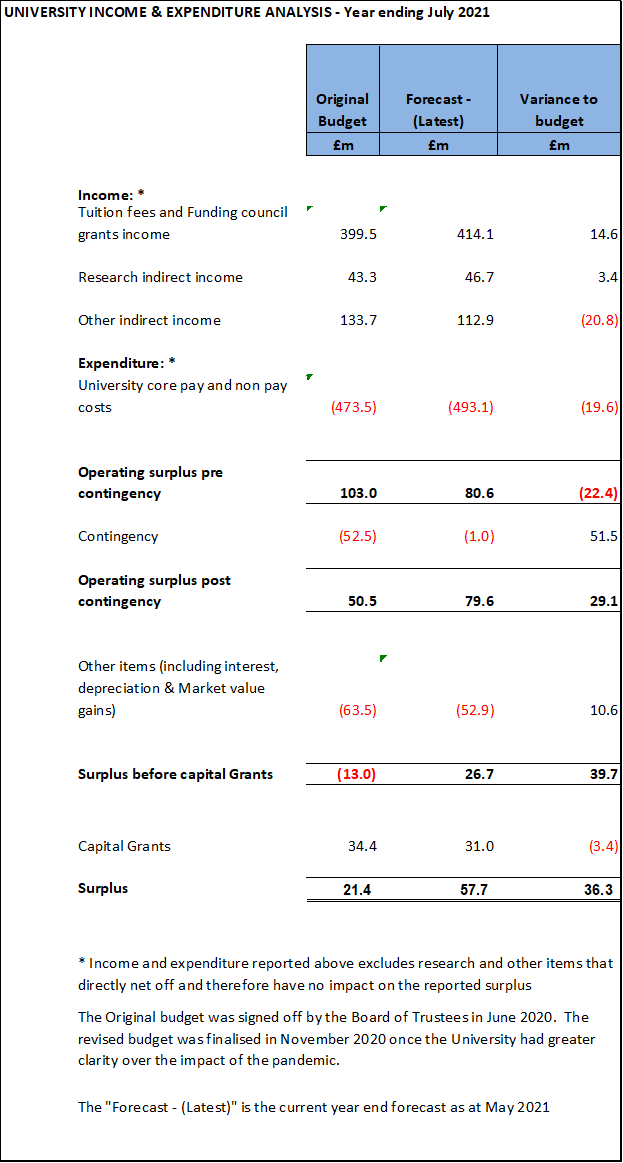Bristol Students’ Union is celebrating its centenary and has entered a new phase in its joint working with the University. Professor Tansy Jessop, Pro Vice-Chancellor for Education and Students, reflects on the evolution of our partnership and the issues that Bristol SU and the University’s Executive Board (UEB) are addressing together, thanks to the annual SU-UEB agreements.

As Bristol SU turns 100, it’s an exciting time to be working with them; our relationship has matured, on both sides, and we’re working much more in tandem. It’s proving to be positive and productive.
The COVID-19 pandemic reset our relationship as a genuine partnership. We needed to check in regularly with the SU’s Full-Time Elected Officers, since they’re one of our key routes into the student community. Those lines of communication, and the recognition that we have shared concerns, have persisted.
Bristol SU’s move into Senate House has positioned them at the heart of the Clifton campus, in much closer proximity to students and to the UEB (and within easy reach of a good coffee!). The SU itself has a fantastic induction for its Elected Officers and has gained real traction with the student community, as witnessed by the record-breaking voter turnout for the SU Elections and an increase in attendance at Welcome Week.

What co-creation looks like
Co-creation is blossoming at Bristol. Here are a few examples.
Last year, we launched a wonderful partnership between staff and student representatives, co-led by Catherine Hindson, Director of Quality and Mia Stevens, Undergraduate Education Officer, and supported by the SU and Academic Quality and Policy Office (AQPO). It’s called the Student Academic Representation Network (SARN). This isn’t just a talking shop – it’s vibrant. The most recent meeting had over a hundred people in the room, from student reps to School Education Directors to Professional Services colleagues in our schools. The network is sparking new relationships and discussions and leading to fresh approaches to Student Staff Liaison Committees, for example.
The Elected SU Officers are co-creating solutions on the ground, too. Last year the Undergraduate Education Officer, Nicole Antoine, advocated for a digital study space finder as part of the UEB-SU agreement (see below). There was an app in development, but Nicole thought this would take longer than her tenure, so she met with Library Services and IT Services, and they worked out a method of manually inputting details of vacant spaces across campus. They designed an online study space navigator, and the day it went live, it had 14,000 hits from students. This resource continues to be very successful.
The Bristol SU-UEB agreement
We introduced annual agreements at the instigation of our Vice-Chancellor, Professor Evelyn Welch, a couple of years ago. We try to set targets that are achievable and measurable, and we have regular contact between the SU Officers and their UEB counterparts. They take us through the progress they’re making, what the blockers are and what help they need from us. Some of these conversations have to be long-term.
The SU Officers’ priorities as framed in this year’s agreement – and directly informed by students via the Big Bristol SU Survey and other channels – come under three themes: Student Poverty, Academic Satisfaction and Collective Wellbeing. There are ambitious proposals as well as more easily achievable ones.
In the latter category, there’s ‘Borrow a Blazer’ – a wonderful idea to help students who’ve been called to an interview. We’re asking staff and others to donate blazers to the Careers Service so that students don’t have to buy one for the occasion.
Some priorities are knotty to solve. One is student housing – the cost of it, and the hoops you must jump through. To get a guarantor for a tenancy agreement is challenging if you don’t have support from family or carers. This year, the Officers’ pitch to UEB has focused on supporting international students and those who have more challenges in the housing market. This is a long-term priority which is difficult for the university to solve, but we’re working through it in partnership.
Another priority concerns buses, particularly exam buses from Stoke Bishop to the Clifton campus during the examinations period. There are other great ideas, like introducing more sensory rooms similar to the one in Senate House (which is peace on Earth, by the way! Bean bags, bubbling water, forest visuals… no wonder it gets a lot of demand). Could we dot them around campus for more students who are in particular need? We’re working on that one at the moment. We operate in a financially constrained environment, so what can we afford? Our sustained commitment to subsidising food at our Source cafés has been helpful to students struggling to make ends meet. Our partnership involves a lot of back-and-forth, but we’re determined to make real progress.

Getting traction
The SU Officers are doing so much great work at the moment: running student focus groups and workshops on how we can improve our NSS scores on feedback and marking criteria; working with our Teaching Excellence Framework (TEF) oversight board, and with our Study Skills team on accessibility and learning outcomes; seeking more commitments to postgraduate scholarships. Excitingly, it all involves a lot of co-production and collaboration. We’re beginning to see the fruits of this work with improvements in our Student Voice results in the NSS, and I hope that’s just the start.
I’d also love to see a greater understanding among academics and students about what Bristol SU really does. Besides everything I’ve talked about, the SU does a beautiful job of creating a sense of belonging.
We invest a great deal in the student experience because we want it to be genuinely transformative for our students, both personally and academically, so that they leave us as graduates ready to make a difference to society and to the planet. I’m so pleased and proud of our relationship with Bristol SU as we celebrate its 100-year mark!
To learn more about Bristol SU and its work, watch ‘We Are Bristol SU’ on YouTube.

 To mark International Women’s Day 2024, our Deputy Vice-Chancellor and Provost, Professor Judith Squires, reflects on progress made towards gender equality at Bristol, our efforts to make a positive impact on the lives and careers of women both locally and nationally, and the importance of year-round commitment to these issues.
To mark International Women’s Day 2024, our Deputy Vice-Chancellor and Provost, Professor Judith Squires, reflects on progress made towards gender equality at Bristol, our efforts to make a positive impact on the lives and careers of women both locally and nationally, and the importance of year-round commitment to these issues.


 We have published our Annual Report and Financial Statements for the year ended 31 July 2022. You can
We have published our Annual Report and Financial Statements for the year ended 31 July 2022. You can 
 Today is
Today is  We recently published our
We recently published our 
